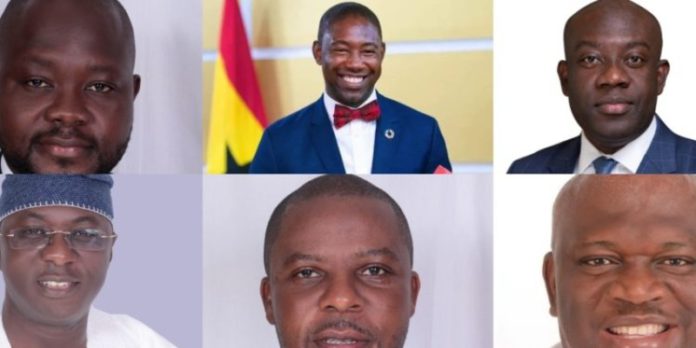
1. Ministerial reshuffle or shuffle occurs when a head of government rotates or changes the composition of ministers in his or her government or when the head of state in a Bicephalous system of government, changes the head of government, and a number of ministers.
In democratically governed countries, Ministerial Reshuffles are undertaken periodically, for several reasons. First of all, they seek to introduce new skills, talents, competence and fresh ideas to a governance machinery.
Second, they are a way to reposition people to areas where their talents and expertise would be better needed. Third, they are a tool for demanding accountability from appointees as they make them sit up to deliver in order not to be sacked or demoted. Fourth, they are used as a tool to retire the tired, and kick out the incompetent from government.
Fifth, they may be used as a mechanism to downsize government or bring on board more hands to help.
Sixth, they are a mechanism for promoting inclusivity in governance and nation building. Last but not the least, they are a way to assert the control of the appointing authority over his or her appointees.
2. Given its importance, it must be undertaken periodically in developing democracies. It must however be noted that frequent reshuffles aren’t helpful as it erodes institutional memory and undermines the need to build experience in carrying out the task of government.
Refusing to reshuffle is also dangerous as it perpetuates incompetence, promotes complacency and deny a developing country of access to its limited human resource base, that must be tapped for national development.
3. So, the periodization of reshuffling is more important than its frequency. This explains why successive governments in the Fourth Republic of Ghana, periodically reshuffled. The only government that appear to have no appreciation of the idea and ideals of reshuffling, is the current one headed by President Akufo Addo.
The President may have his own reasons but I do not think such reasons can torpedo the ideals of periodic reshuffling. The calls for reshuffling have been cross-partisan and incessant. From the ruling party, there have been calls and demonstrations.
From the opposition, there have been same calls and from academia and civi society, the calls have been tremendous. But these have been ignored with ignominy. But to be fair, this isn’t the only call that has been ignored.
Several of them have. We for instance called on the President to leave Domelovo alone but, he refused to listen, until the courts told him he was wrong.
5. In less than ten months to the end of his tenure, President Akufo Addo has finally reshuffled his Ministers. But this particular reshuffle is plagued with some confusion in a manner that makes it difficult for one to appreciate the direction he’s heading with the country. What is the focus of this reshuffle vis-a-vis the outlined rationale?
6. Ministers have been sacked and replaced with Ministers of State. But in the hierarchical order of Ministerial Appointments, Ministers of State aren’t the same as Ministers. They come in between Ministers and Deputy Ministers.
So, is the current arrangement of having Ministers of State, rather than Ministers, a cost cutting mechanism or we simply do not understand the difference between the two?
Also, we must look at the numbers again, as what has been done, doesn’t clearly show that the call for downsizing has also been ADEQUATELY addressed. In other words, even if there’s a reduction in size of government, it would be very marginal.
7. More importantly, why now, that the day is over? Is it in line with the belief that, last days are dangerous and that something new or drastic can be done at the last minute injury time? Is that how governance work? Is governance like football match, where we can hope that goals can be scored in injury time? Is governance about superstition? Are the new ministers of state going to operate with sector budgets that they had no inputs in preparing?
8. In my view, it is better late than never that the President has finally reshuffled, though I do not think it is in response to the incessant calls. But to be brutally frank, this is an injury time reshuffle that does not satisfy any of the major reasoning for reshuffles.
Fresh people introduced, aren’t occupying substantive portfolios, and those moved around may not have the desired impact because of the very limited time they have.
It does appear that the focus of this injury time reshuffle, is more on partisan interest and an opportunity for others to get into the system so they can also belch and amass wealth for their parliamentary contests, especially in areas where the contests are expected to be highly competitive.
9. The failure of President Akufo Addo to undertake a very substantive, meaningful and thorough period reshuffle, for over seven years, would remain one of the numerous sources of disappointment of his government, by many well meaning Ghanaians.
It is an unprecedented and a bad governance practice that is highly unworthy of emulation by whoever takes over the reins of government from him.
Asalam Aleikum
Yaw Gyampo
A31, Prabiw
P.A.V. Ansah Street
Saltpond
&
Suro Nipa House
Behind Old Post Office
Larteh-Akuapim




![CRC engages Akufo-Addo, Bawumia and Kyei Mensah-Bonsu [Photos]](https://www.adomonline.com/wp-content/uploads/2025/06/Constitutional-Review-Committee-218x150.jpg)

